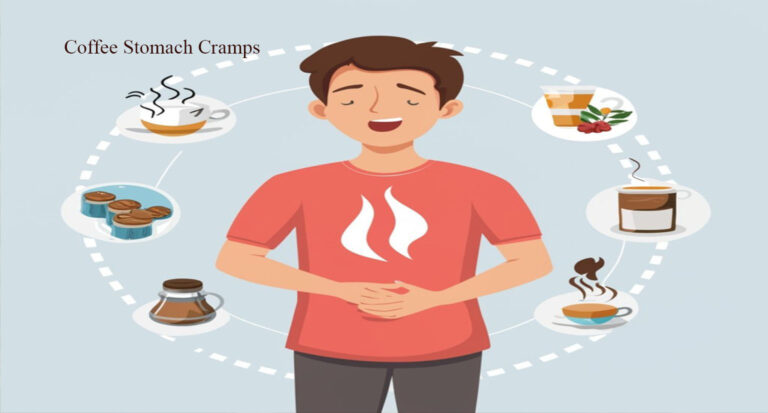Benefits of Quitting Coffee: 2 Ways to Transform Your Health
In a world buzzing with coffee culture, the transformative that awaits those who choose to part ways with their daily caffeine fix. The myriad benefits of quitting coffee and embracing a lifestyle marked by enhanced well being and vitality.
This goes beyond the surface, shedding light on the numerous advantages that come with liberating oneself from the grip of coffee. From improved sleep patterns to heightened energy levels, the benefits are plentiful.
The movement toward a healthier, more energized you by bidding farewell to the caffeine routine. A life where clarity, vigor and well being take center stage.
What Happens To Your Body When You Stop Drinking Coffee?
Withdrawal Symptoms
Initially, you may experience withdrawal symptoms such as headaches, fatigue, irritability and difficulty concentrating. These symptoms typically peak within the first few days of quitting coffee but gradually subside as your body adjusts to the absence of caffeine.
Improved Sleep Patterns
As your body breaks free from caffeine dependency, you may notice improvements in your sleep patterns. Falling asleep may become easier and the quality of your sleep may improve, leading to more restful nights and increased daytime alertness.
Balanced Energy Levels
While you may initially experience a temporary decrease in energy levels due to caffeine withdrawal, your body will eventually recalibrate its natural energy production mechanisms. Without the highs and lows of caffeine induced energy spikes, you may experience more stable and sustained energy levels throughout the day.
Reduced Anxiety and Stress
Caffeine can exacerbate feelings of anxiety and stress by stimulating the release of stress hormones like cortisol and adrenaline. By quitting coffee, you may experience reduced levels of anxiety and a greater sense of calmness as your body’s stress response system returns to equilibrium.
Balanced Hormonal Levels
Coffee consumption can disrupt hormonal balance, particularly cortisol levels, which play a crucial role in regulating stress and metabolism. Quitting coffee allows your body to regain control over its hormonal balance, leading to improved mood stability and overall well being.
Better Digestive Health
Coffee is known to stimulate gastric acid secretion and can exacerbate digestive issues such as acid reflux and heartburn. By eliminating coffee from your diet, you may experience relief from digestive discomfort and promote better gastrointestinal health.
Enhanced Hydration
Coffee is a diuretic, meaning it increases urine production and can contribute to dehydration if consumed in excess. By quitting coffee, you give your body the opportunity to maintain optimal hydration levels, supporting overall health and well being.
Improved Dental Hygiene
Coffee’s dark pigments can stain teeth and contribute to dental discoloration over time. By quitting coffee, you can preserve your smile and promote better oral hygiene, reducing the risk of staining and supporting long term dental health.
Mental Clarity and Focus
Quitting coffee may lead to improved mental clarity and enhanced cognitive function. Without the interference of caffeine induced jitters and crashes, you may experience sharper focus, better concentration and improved productivity throughout the day.
Healthier Lifestyle Choices
Choosing to quit coffee can be a catalyst for adopting other healthy lifestyle habits. As you prioritize your well being and break free from caffeine dependency, you may find yourself more inclined to make positive choices regarding nutrition, exercise and stress management, leading to a more balanced and fulfilling life.
Cons Benefits of Quitting Coffee
Decreased Energy Levels
In the initial stages of quitting coffee, you may experience a temporary decrease in energy levels as your body adjusts to the absence of caffeine. Over time, however, your energy levels are likely to stabilize, leading to more consistent vitality throughout the day.
Potential Weight Gain
Some individuals may experience weight gain after quitting coffee due to changes in metabolism and appetite regulation. Without the appetite suppressing effects of caffeine, you may find yourself consuming more calories than before, potentially leading to weight gain if dietary habits are not adjusted accordingly.
Increased Risk of Headaches
Quitting coffee can trigger headaches and migraines in some individuals, especially during the initial withdrawal period. These headaches typically subside as your body adjusts to the absence of caffeine, but they can be uncomfortable and disruptive in the meantime.
Reduced Focus and Concentration
While quitting coffee can lead to improved mental clarity and focus in the long run, some individuals may experience temporary difficulties with concentration and cognitive function during the initial withdrawal phase. These effects are typically short lived and resolve as your body adapts to the absence of caffeine.
Potential Mood Swings
Quitting coffee can disrupt neurotransmitter levels in the brain, potentially leading to mood swings and irritability. These effects are usually temporary and diminish as your body adjusts to the absence of caffeine.
Social and Cultural Impact
Coffee often plays a significant role in social and cultural contexts and quitting may result in feeling socially isolated or missing out on shared experiences with friends and colleagues who enjoy coffee together.
Changes in Digestive Patterns
Quitting coffee can lead to changes in digestive patterns, including alterations in bowel movements and gastrointestinal discomfort. These effects are typically temporary and subside as your body adapts to the absence of caffeine.
While quitting coffee offers numerous potential benefits, including improved sleep, reduced dependency and enhanced hydration, it may also present challenges such as withdrawal symptoms, decreased energy levels and changes in weight and mood. Ultimately, the decision to quit coffee should be made based on individual health goals, preferences and tolerance for potential side effects.
Frequently Asked Questions
1. Will quitting coffee improve my sleep?
Yes, quitting coffee can lead to improved sleep quality by eliminating caffeine induced sleep disturbances. Many individuals experience deeper, more restorative rest after quitting coffee.
2. How long does it take to adjust to life without coffee?
The adjustment period varies from person to person, but most individuals experience a significant improvement in energy levels and mood within a few weeks of quitting coffee. However, full adjustment may take several weeks to months.
3. Will I experience withdrawal symptoms when quitting coffee?
It’s possible to experience withdrawal symptoms such as headaches, fatigue, irritability and difficulty concentrating when quitting coffee. These symptoms are usually temporary and subside as your body adjusts to the absence of caffeine.
4. Can quitting coffee help reduce anxiety and stress?
Yes, quitting coffee can lead to reduced levels of anxiety and stress for many individuals. Caffeine can stimulate the release of stress hormones like cortisol and adrenaline, contributing to feelings of anxiety and tension.
5. Will quitting coffee lead to weight gain?
Some individuals may experience weight gain after quitting coffee due to changes in metabolism and appetite regulation. Without the appetite suppressing effects of caffeine, you may consume more calories than before, potentially leading to weight gain if dietary habits are not adjusted accordingly.
6. How will quitting coffee affect my energy levels?
In the short term, quitting coffee may lead to a temporary decrease in energy levels as your body adjusts to the absence of caffeine. However, over time, most individuals experience more stable and sustained energy levels throughout the day.







